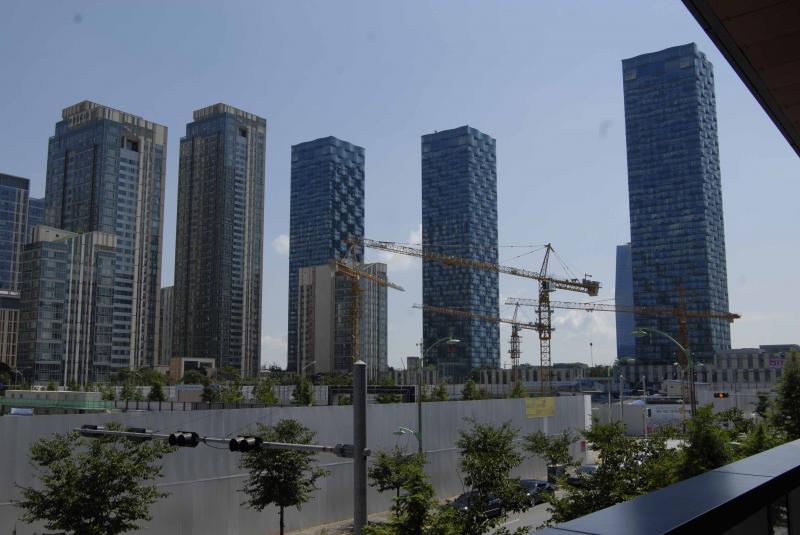In an increasingly globalized dialogue between nations, new boundaries are being imposed by corporate and digital interactions resulting in the emergence of new territories. Built by capital for capital, we are witnessing and endorsing the sudden appearance of the corporate industrial cities of the world as gated loopholes indifferent of their context. An architectural dialectic which has embedded in its roots a limit and an aim, posing the question of: Will they really replace the economic hegemony of our current capital cities?
Taking Songdo’s IBD as our case study and test laboratory, we want to question the different shades of corporate architecture, from the master plans, to the tints of glass and the corporate pens.
Equipped with the grid models of Chicago, New York, the sprawl of LA, and the disappearance of the Silicon Valley, we will use precedent instances to interrogate the existing architectural platform of Songdo. Alongside Rowe, Rem’s enthusiasm and Reinhold Martin’s seriousness, and with the naivety of our preconceptions as clients, we will ask ourselves if this is where we want to live and how we want to live; if leisure is part of business and whether we belong to the corporation or ourselves. We will challenge if we are the most individualistic and different or the most bland and neutral; if architectural eccentricity will prevail, and if this will last even half a century or we will be condemned to move constantly from lobby to lobby chasing the profits of the latest real estate bonanza.
One by one, we want to uncover, document and re-propose those limits that allow the corporate city to be a totally fictive world, turned into itself, like a Leed certified black hole. We strive to reveal the discrepancies which lie behind the seemingly seamless, infinite and immanent world of the grid, and to what extent is it merely an organizational principle, and when it starts becoming an aesthetic principle: an object of communication. What is it telling us?
Eligibility
The workshop is open to current architecture and design students, phd candidates and young professionals. Software Requirements: Adobe Creative Suite, Rhino (SR7 or later)


